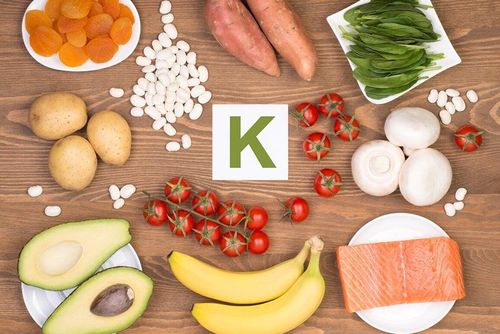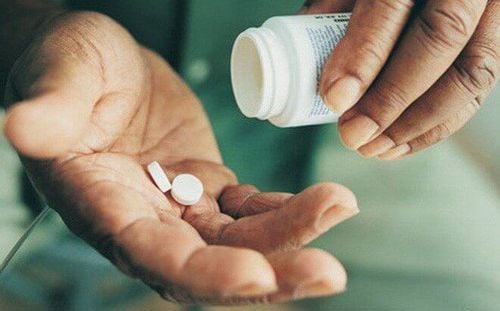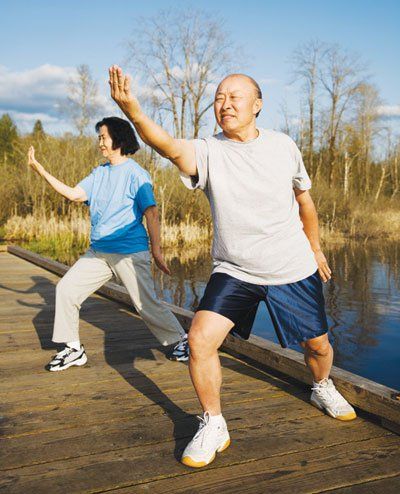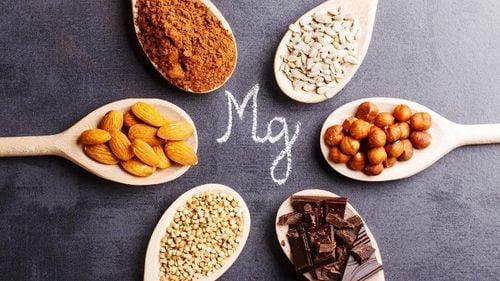This is an automatically translated article.
Along with the increase in age, the body also undergoes many changes, notably the aging of the organs over time. Therefore, the elderly need a complete and special nutrition regimen to help promote health and better digestion. Let's find out the best foods for the elderly through the article below.
1. Fiber is a good food for the elderly
“What should the elderly eat to ensure adequate nutrition for the body?” Accordingly, foods rich in fiber such as oatmeal, fruits, vegetables, nuts and beans... are foods that play an important role in the nutrition of the elderly.
The high fiber content in these foods helps to reduce constipation in the elderly and the level of total cholesterol in the blood, control blood sugar to maintain a reasonable body weight.
According to recommendations from nutritionists, men aged 51 and older should maintain 30g of fiber per day and women 51 years of age and older should maintain 21g of fiber per day.
2. Good cereals for the elderly
Grains are a great source of fiber for the body, in addition, they also contain a large amount of B vitamins - a group of vitamins essential in the elderly. In particular, vitamin B6 and folic acid (vitamin B9) are the keys to keeping the brain healthy. A deficiency in small amounts of these vitamins can also create adverse health effects as you age. In addition, whole grains are also effective in reducing the risk of cardiovascular diseases, cancer and diabetes. Whole grain foods such as whole wheat bread, quinoa, wheat....3. Nuts
Nuts are one of the nutritional sources for the elderly. Nuts such as walnuts, almonds, cashews, pecans and pistachios have great anti-aging effects, reducing the risk of age-related cardiovascular diseases such as stroke and diabetes. type 2 sugar, neurological disease and some types of cancer... Plus, nuts also help protect your brain as you age.

Các loại quả hạch là một trong những nguồn dinh dưỡng cho người cao tuổi
4. Drink lots of water
Along with increasing age, the body not only loses a large amount of water, but the feeling of thirst will also be reduced. That means it often takes older people longer to tell when they're dehydrated. On the other hand, water plays an important role in the health of the body, helping to control temperature, maintain good joint function and affect mood and concentration. Therefore, elderly people need to drink enough water every day (at least 8 glasses of water) even if they do not feel thirsty.
5. Adding fish to the diet for the elderly
Small fish such as albacore tuna, salmon, herring... should be added to the diet for the elderly about 2 times a week. The reason is that fish contains a large amount of DHA (an omega-3 fatty acid) good for the brain. Low levels of DHA have been shown to be associated with Alzheimer's disease. Therefore, adequate intake of this nutrient plays a necessary role in the elderly. In addition, some foods contain a lot of DHA such as walnuts, fish, apples, flaxseeds, chia seeds...
6. Lean meat provides protein
Lean meat is an abundant source of protein for the body. Protein-rich foods help fight the natural muscle loss that occurs in the elderly, providing the necessary amount of protein for the body. In addition, some other foods contain a lot of protein such as eggs, milk and dairy products...
7. Dairy products Milk and dairy products contain large amounts of Calcium - a mineral It plays an important role in keeping bones healthy. For the elderly, calcium also helps prevent osteoporosis, colon cancer and high blood pressure. From the age of 50 onwards, the body needs an average of 1200mg of calcium per day. Calcium can be obtained through full-fat and low-fat dairy products. Some foods are good for the elderly from milk such as yogurt, cheese, soy milk...
8. Blueberries help protect the brain better Blueberries are foods that help protect the brain when cold As age increases, the high content of polyphenols in blueberries helps to fight inflammation in the body, reduce harmful agents to DNA, and improve the level of interaction between brain cells. Therefore, the diet for the elderly should be supplemented with blueberries.
It should be noted that this fruit should be used fresh, because the polyphenol content will be reduced when you bake or process them.

Một số thực phẩm tốt cho người cao tuổi từ sữa như sữa chua, phô mai, sữa đậu nành...
9. Red and orange foods
Red and orange fruits like watermelon, tomatoes, bell peppers and oranges are rich in a natural compound called lycopene. Studies show that these foods help reduce the risk of certain types of cancer, stroke,...
10. Vegetables that boost the immune system Cruciferous vegetables like broccoli Green leafy vegetables, Brussels sprouts, cauliflower ... help strengthen the body's immune system, which plays an important role in the elderly - the age when the immune system is weakening.
Research shows that cruciferous vegetables contain sulforaphane compounds that help activate the body's immune cells, thereby helping to protect the body from attack by pathogens, reducing the risk of certain diseases. type of cancer.
11. Dark green vegetables Dark green vegetables such as spinach, collard greens, kale... are foods that contain high levels of antioxidants, which help reduce the risk of cataracts. and macular degeneration, reducing the risk of memory loss common in the elderly. Therefore, it is necessary to supplement at least one serving of dark green vegetables per day in the elderly.
12. Antioxidant Avocado Scientific studies have shown that the high antioxidant content in avocados has many health benefits for the elderly as follows:
Improve better memory; Reduce total cholesterol in the blood; Reduce the risk of joint diseases; Maintain a healthy body weight; Protect the skin from the effects of the sun.

Các loại rau màu xanh đậm là thực phẩm tốt cho người cao tuổi
13. Adding sweet potatoes to the diet of the elderly
Sweet potatoes are a food rich in beta carotene – the compound that the body converts into vitamin A. This vitamin is considered “key” to healthy vision and skin, helping to keep the immune system healthy. strong. Studies have shown that the vitamin A content of sweet potatoes is higher than that of other foods, for example, about 23 cooked broccoli provides the same amount of vitamin A as 1 sweet potato. In addition, sweet potatoes help slow down age-related changes in the brain. Therefore, this type of food should be added to the diet of the elderly.
14. Spices Spices are known to play a role in bringing flavor to dishes, but in fact the uses they bring to health are extremely important, specifically as follows:
Garlic helps maintain the stability and circulation of blood vessels in the body; Cinnamon helps reduce cholesterol and triglycerides in your blood; Turmeric helps protect the body from the risk of depression, Alzheimer's disease and some cancers; In summary, the elderly often face high risks of diseases due to reduced resistance. In addition to regular exercise, the elderly should follow a diet and provide adequate and reasonable nutrients.
Please dial HOTLINE for more information or register for an appointment HERE. Download MyVinmec app to make appointments faster and to manage your bookings easily.
Reference source: webmd.com












